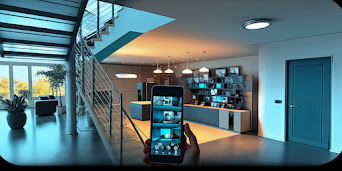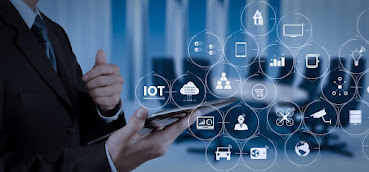In the ever-evolving landscape of consumer electronics, smart devices have emerged as the centerpiece of our digital lives. These intelligent, interconnected gadgets have revolutionized the way we interact with the world around us, transforming the very fabric of our daily experiences. As we delve into the diverse array of smart devices available in our time, it becomes increasingly clear that the future of technology is intrinsically intertwined with these versatile and powerful tools.
Smart Phones: The Ubiquitous Companion
At the forefront of the smart device revolution stand smartphones, which have become indispensable to modern life. In our time, these pocket-sized marvels have continued to push the boundaries of what is possible, boasting impressive processing power, stunning displays, and a plethora of advanced features. Equipped with seamless voice control, augmented reality capabilities, and powerful artificial intelligence, smartphones have become the command centers of our digital ecosystems, allowing us to effortlessly manage our schedules, communicate with loved ones, access a wealth of information, and even control our smart home environments.
Smart Wearables: Redefining Personal Technology
Alongside the ever-present smartphone, the smart wearable market has experienced a remarkable surge in popularity. From sleek fitness trackers that monitor our physical activity and health metrics to sophisticated smartwatches that serve as personal assistants on our wrists, these devices have become integral to our daily lives. In our time, smart wearables have evolved to offer a diverse array of features, including hands-free voice control, mobile payment integration, and even advanced biometric sensors that provide real-time insights into our well-being.
Smart Home Devices: The Intelligent Backbone of our Dwellings
The smart home revolution has also gained significant momentum in recent years, with a growing ecosystem of interconnected devices that seamlessly integrate into our living spaces. From voice-controlled virtual assistants that manage our lighting, temperature, and security systems to smart appliances that optimize energy consumption and streamline household tasks, these intelligent gadgets have transformed the way we interact with our homes. In our time, the smart home ecosystem has become increasingly sophisticated, offering homeowners unprecedented levels of control, automation, and personalization.
The Future of Smart Devices: Endless Possibilities
As we look toward the future, the potential of smart devices seems boundless. Advancements in areas such as 5G connectivity, edge computing, and the Internet of Things (IoT) are poised to unlock even greater capabilities, enabling seamless integration across multiple devices and platforms. The integration of cutting-edge technologies, such as artificial intelligence and augmented reality, will further enhance the user experience, empowering us to navigate our digital and physical worlds with unprecedented efficiency and personalization.
The rise of smart devices has undoubtedly reshaped the technological landscape, redefining the way we live, work, and entertain ourselves. As we continue to embrace these intelligent tools, the future promises an even more connected, intuitive, and empowered digital experience, paving the way for a world where technology and humanity coexist in perfect harmony.
Smart Tablets and Laptops: Blurring the Lines of Productivity
Beyond smartphones and wearables, the smart device revolution has also infiltrated the realm of personal computing. In our time, tablets and laptops have evolved to incorporate a myriad of intelligent features, blurring the lines between work and leisure. These devices boast advanced touchscreen interfaces, seamless stylus integration, and powerful processors that enable seamless multitasking, content creation, and information consumption. Furthermore, the integration of virtual assistants and cloud-based productivity suites have empowered users to maximize their efficiency, whether they are drafting a report, brainstorming ideas, or enjoying a immersive multimedia experience.
Smart Appliances: Elevating the Everyday
The smart home revolution has also extended its reach to the most ubiquitous of household items – appliances. In our time, smart refrigerators, ovens, washers, and dryers have become increasingly commonplace, offering a level of intelligence and automation that simplifies our daily chores. These appliances can communicate with one another, optimize energy usage, and even provide personalized recommendations based on our habits and preferences. Smart appliances have not only enhanced the convenience of our homes but also contributed to a more sustainable and eco-friendly lifestyle.
Smart Vehicles: Redefining the Driving Experience
The influence of smart technology has even permeated the automotive industry, transforming the way we think about transportation. In our time, smart vehicles have emerged as the new standard, offering a range of intelligent features that enhance safety, efficiency, and overall driving experience. From advanced driver-assistance systems that monitor the road and provide real-time alerts to seamless integration with our digital ecosystems, allowing us to control various in-car functions through voice commands or mobile apps, these smart cars have become extensions of our connected lives.
The Convergence of Smart Devices: Unlocking the Power of Ecosystem Integration
As the smart device landscape continues to evolve, the true potential of these technologies lies in their ability to seamlessly integrate and work in harmony. In our time, we are witnessing the rise of comprehensive smart device ecosystems, where our smartphones, wearables, home appliances, and vehicles communicate and collaborate to deliver a truly personalized and streamlined user experience. This convergence of smart devices has unlocked new levels of convenience, productivity, and energy efficiency, empowering us to live smarter, more connected lives.
The Importance of Data Privacy and Security
As our lives become increasingly intertwined with smart devices, the importance of data privacy and security has become paramount. In our time, manufacturers and developers have placed a greater emphasis on implementing robust security measures and transparent data management practices to safeguard user information and instill trust in these intelligent technologies. Ongoing efforts to establish industry-wide standards and regulations have further reinforced the commitment to protecting the privacy and security of smart device users.
The Sustainability Imperative: Smart Devices and the Green Revolution
Alongside the technological advancements, the rise of smart devices has also ushered in a new era of environmental consciousness. In our time, smart devices have become increasingly eco-friendly, incorporating sustainable design principles and energy-efficient features. From smart home appliances that optimize energy consumption to electric vehicles that emit zero emissions, these intelligent devices have become integral to the global push for a greener future. Manufacturers have also embraced the principles of circular economy, ensuring that smart devices can be easily repaired, recycled, or repurposed, reducing electronic waste and minimizing the carbon footprint of the technology industry.
Accessibility and Inclusivity: Smart Devices for All
In the pursuit of technological progress, the smart device ecosystem has also made significant strides in ensuring accessibility and inclusivity. In our time, these intelligent gadgets have been designed with the diverse needs of users in mind, incorporating features that cater to individuals with physical, cognitive, or sensory disabilities. From voice-based user interfaces and text-to-speech capabilities to advanced haptic feedback and customizable accessibility settings, smart devices have become powerful tools for empowering individuals and promoting digital inclusion.
The Future of Work: Smart Devices in the Workplace
The impact of smart devices has also permeated the professional landscape, reshaping the way we approach work and collaboration. In our time, these intelligent tools have become indispensable in the modern workplace, enabling remote work, enhancing productivity, and fostering seamless teamwork. Smart devices, equipped with features such as video conferencing, cloud-based document sharing, and virtual whiteboards, have facilitated the rise of flexible and distributed work environments, allowing employees to collaborate effectively regardless of their physical location.
The Ethical Considerations of Smart Devices
As smart devices become deeply integrated into our daily lives, the discussion around their ethical implications has gained momentum. In our time, there are ongoing debates surrounding the responsible development and deployment of these technologies, addressing concerns such as algorithmic bias, data privacy, and the potential displacement of human labor. Policymakers, industry leaders, and civil society organizations have collaborated to establish guidelines and regulations that ensure the ethical use of smart devices, prioritizing transparency, user agency, and the equitable distribution of the benefits of these transformative technologies.
The Future of Smart Devices: Towards a More Intelligent and Interconnected World
As we look ahead, the future of smart devices promises even more remarkable advancements. In the coming years, we can expect to see the continued integration of cutting-edge technologies, such as 5G connectivity, artificial intelligence, and quantum computing, further enhancing the capabilities and intelligence of our smart devices. The convergence of these innovations will enable seamless cross-device communication, real-time data processing, and predictive analytics, empowering us to navigate an increasingly complex world with greater efficiency, personalization, and control. As we embrace this exciting future, it is clear that smart devices will continue to be the cornerstone of our digital lives, shaping the way we live, work, and interact with the world around us.






.jpg)









Comments
Post a Comment